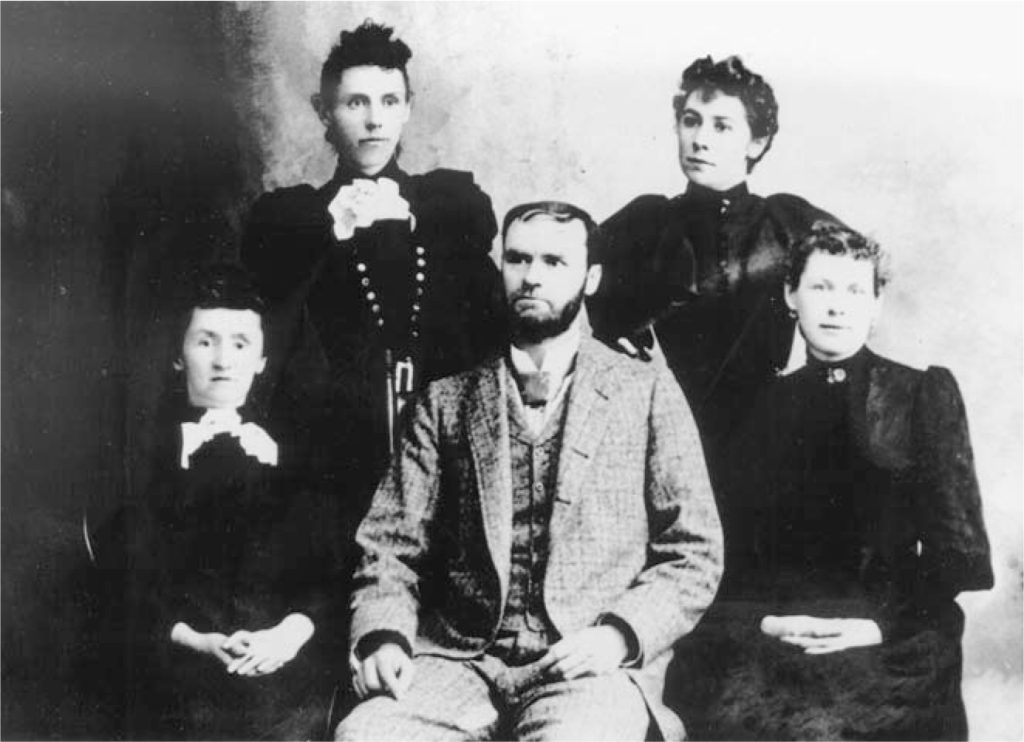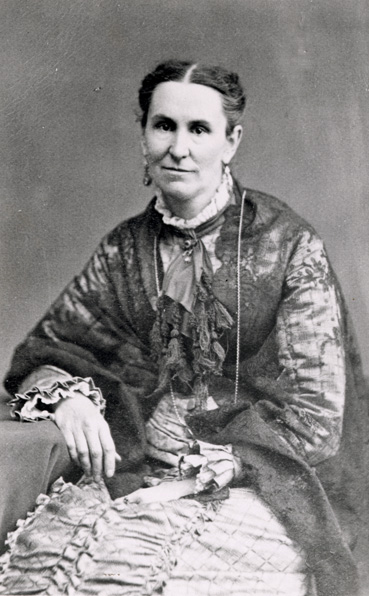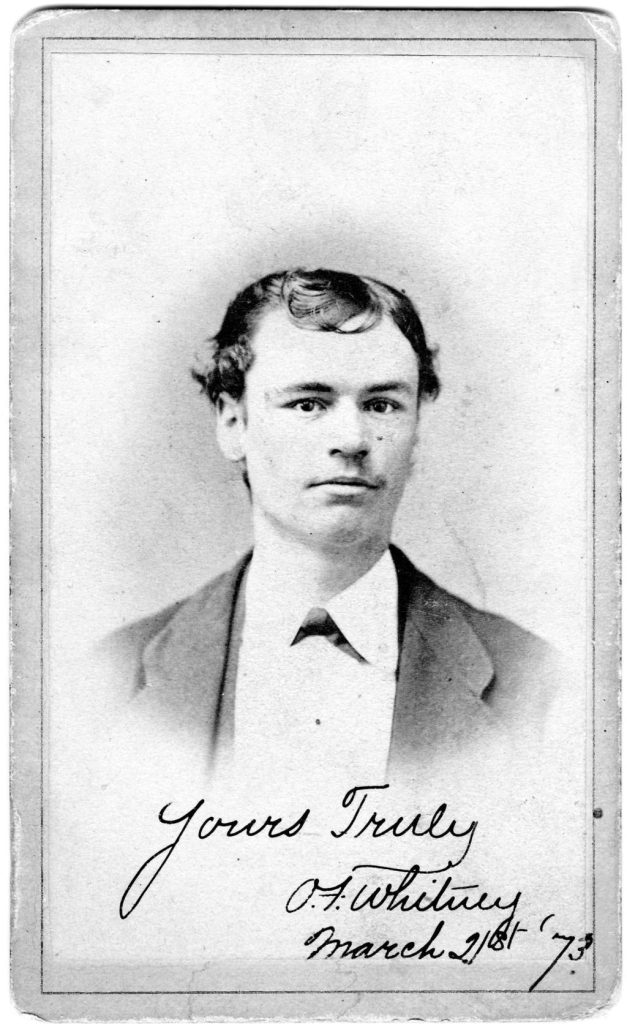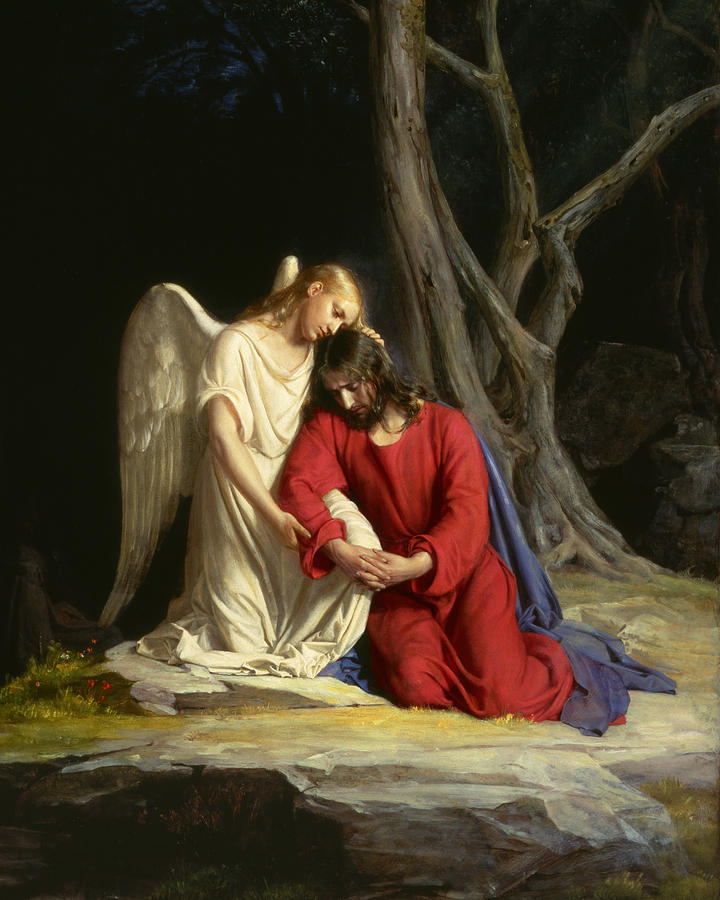In honor of Mother’s Day, we share the following excerpt from the biography on the life of Helen Mar Kimball, Joseph Smith’s Plural Wives, Volume 1: Helen Mar Kimball.
The Son of God taught, “Greater love hath no man than this, that a man lay down his life for his friends.”1 For a parent, this verse is often filtered through the lens of fatherhood and motherhood. In a very real sense, righteous fathers and mothers lay down their own lives, giving entirely of their strength, and investing their fondest hopes and dreams in their children. On the one hand, it can be a source of great joy to witness one’s posterity choosing to live in the faith—on the other, fathers and mothers can experience terrible anguish if children rebel, a heavy burden that must often be borne in prayerful silence. Such a mother was Helen Mar Kimball.
Helen’s Anxiety for Her Children
Helen loved her children—she loved having them around her and sharing in their lives, sometimes even dreaming when they were separated of how deeply she missed them. Helen also worried for the spiritual welfare of her sons and daughters—often fasting, praying, and exhorting them, as it were with all the feeling of a tender parent, to consecrate their lives to God. On March 19, 1885, she recorded:
Thursday 19th Gennie coughed some in the night—kept me awake—feel poorly but concluded, last evening, to fast to day and am doing so, that I may get faith & power over darkness, & gain strength to come up to my duties, in public and in private life, among my household—The Lord only knows my anxiety in behalf of those, whom He has placed under my charge.
Charles M. Hatch and Todd M. Compton, A Widow’s Tale: 1884-1896 Diary of Helen Mar Kimball Whitney (Logan: Utah State University Press, 2003), 76; underlined in original.

The heart of this stalwart and attentive mother—ever anguishing over the temporal and eternal welfare of her children—found a moment of reprieve when, on April 8, 1886, Helen received a special blessing under the hands of a fellow Church member, Brother Donolson. This blessing revealed to her that the Lord was intimately aware of her fears for her children, and that He had heard her prayers of intercession:
. . . Bro D. gave me a blessing, and revealed such great & marvalous things to me concerning myself, & made such promises, & predictions of things present, and things to come, and what I should accomplish in this life that I felt that the Lord had heard my petitions, for I’d been praying and weeping over the things that were weighing me down—The slackness of my girls, in living for any thing but the present, and yearning for the spiritual gifts and blessings neccessary to make me adequate to accomplish my mission that with my bodyly ales, caused me to pray more fervently than usual last evening, and the evening before, that I might be able to do my part, and that my house might become a fit place for Holy angels to dwell, instead of the opposite. And when we were sitting talking this morning I thought of my prayer, and that with all the glorious things spoken to me overwhelmed me with gratetude to the Giver of all that is good & exalting.
Charles M. Hatch and Todd M. Compton, A Widow’s Tale: 1884-1896 Diary of Helen Mar Kimball Whitney (Logan: Utah State University Press, 2003), 148; underlined in original.
Healing After Her Son’s Suicide
A few months later, Helen gathered all of her family together for a family picnic. As the festivities began, her oldest son, Orson, took the initiative to stand up and plead with his siblings. Like Nephi of old, he encouraged them to reform their lifestyle—particularly by keeping the Sabbath Day holy and following the Word of Wisdom. One can only imagine the joy that filled his mother’s heart as she listened to her son—standing forth in boldness as a leader among his siblings—beseeching them to fulfill the very desires of her heart:
. . . we had a glorious time—one never to be forgotten. Orson opened with prayer–then addressed us, and his teachings were sharp & to the point—He made a prophecy, at the close, that if we would turn over a new leaf, & obey God, honor His priesthood—keep the word of wisdom, etc, we should be able to stop the destroyer from this time, etc. But if we continued to break over His laws, & did not keep the Sab. day holy, etc. we would have something worse than Charley’s death, and these things he prophesied in the name of Jesus Christ.
Charles M. Hatch and Todd M. Compton, A Widow’s Tale: 1884-1896 Diary of Helen Mar Kimball Whitney (Logan: Utah State University Press, 2003), 182; underlined in original.
The occasion was a bittersweet event—joy at seeing her oldest son so fully engaged in the Gospel, but accompanied by the painful sting of wounds still fresh after the tragic loss of her 21-year-old son, Charles. ‘Charley,’ as he was endearingly called, had committed suicide only weeks before—and the family had been caught entirely unprepared. The uncertainty surrounding the cause of his sudden passing brought a very somber tone to the family’s outing.2
Two additional family members spoke, each sharing how Charley’s recent death had prompted contemplation “of these things, & how much more he had been united, & associated, with those outside of his father’s family than with his own brothers & sisters, etc.” For Helen and her family, this gathering proved to be a unifying event to turn their hearts toward the Lord and one another in a newly awakened sense of familial love:
I [Helen] was the next one called to speak . . . I gave some heartfelt expressions concerning our duties to ourselves and—to one another, & to our religion with some of my experience, etc and told them that I wished to remove every thing that stood between me & my God, that I might feel that he was near to me, & I asked to be forgiven of all that I had ever done to hurt the feelings of any of them—that I knew we’d got to become one in all things & to do this we must make due allowence for one another, etc.
Charles M. Hatch and Todd M. Compton, A Widow’s Tale: 1884-1896 Diary of Helen Mar Kimball Whitney (Logan: Utah State University Press, 2003), 182.
Helen’s message as a mother was one of loyalty and union between siblings, patience, Christlike love, and humility. Helen was not afraid to humbly acknowledge her own faults and to seek earnestly for forgiveness. At the end of the day, her children knew her heart,3 and they knew that it was committed to her God:
I told them that the greatest exaltation would come through obedience to and honoring this Celestial order & many more things were said which I might write had I the time—We had Ice cream after the meeting was over, and every one expressed themselves as greatly pleased, and hoped we’d have more of the same kind of reunions, or meeting of the family. Mary met me after the meeting & kissed me, & asked my forgiveness for every thing she had ever done to hurt my feelings. May this spirit continue and spread among this people is my prayer.
Charles M. Hatch and Todd M. Compton, A Widow’s Tale: 1884-1896 Diary of Helen Mar Kimball Whitney (Logan: Utah State University Press, 2003), 182-183; underlined in original.
Wrestling With Her Daughter’s Marriage Choices

This memorable family picnic and council was a well-timed opportunity to address the need for family harmony, which would be unexpectedly tested just a few days later. Conflict erupted when Genevieve—Gen as they called her—admitted to having accepted an engagement to a young man who was not a member of the Church. Helen’s motherly intuition had warned her that something was amiss, and she sensed with uneasiness, as she prayed for her daughter, that “she is losing the taste of the Holy spirit . . .” Gen had previously assured her family that she was not pursuing a relationship with the non-member fellow, Ed Talbot, with whom she had been spending time. However, when her mother confronted her on the insensitivity of her accepting his attentions, “fooling him along” when her intentions were non-committal, Gen shocked her mother by announcing their recent engagement.
Helen was nearly broken by the disheartening news. In an instant, her dreams of her beloved daughter enjoying the blessings she herself had known in being sealed to a righteous priesthood holder under the proper authority—and the subsequent raising of a eternal family unto the Lord—now seemed cruelly dashed before her face. Yet, her never-ending faith in the Lord’s sure promises is evident in her thoughts regarding this trial, as well:
I was dumbfounded, & heart broken & returned to my room—there I prayed and wept the best part of the day to the Lord that He would have mercy on us, & help me to acknowledge His hand in this as well as all other things, & to show me whether it was for a punishment for Gen’s disobedience or if it would turn out as blessing, by Ed’s joining this Church, & become, as Sol thinks maybe he will, a savior to his fathers house. Gen came to my room & put her arms around me & cried bitterly saying she wished she’d died when she was so sick since she saw how I took it, and begged me not to feel so. But my bitterness she cannot know, nor the doom that awaits those who sever themselves from this Church & its blessings, of which I have warned her of[.] She has been keeping the word of Wisdom and is prayerful. & gone every Sunday to meeting ever since Charley’s death, & before, nearly every Sab. Oh, how long have I prayed that the Lord would send some man to her that she could love & respect, & would be truly a savior on Mount Zion, and why should my prayers be in vain? I feel that I am a mourner indeed. But though my sorrows are keen the Lord will not withold His mercy from me when I’ve tried so hard to serve Him—and to bring my children to His feet—
Charles M. Hatch and Todd M. Compton, A Widow’s Tale: 1884-1896 Diary of Helen Mar Kimball Whitney (Logan: Utah State University Press, 2003), 185; underlined in original.
The following day brought with it another vexing period of “lementation & my eyes are sore with weeping.” A distraught Helen turned to her son, Orson, for counsel:
I told Orson how I felt & how I had prayed that the Lord would show me & him whether His hand was in this or not—that if it was right He would soften Orson’s feelings towards Ed & make me reconciled.
He said he’d felt better since Sol talked to him about Ed’s “being a good boy & that they might make a Latter-day Saint of him,” & told me to treet them both kindly, but to inform them that we would not consent to their union untill he had first received the gospel & became a member thereoff. etc. This I had done—He also told me to set the facts before Gen. & what the Lord had said concerning the everlasting doom of those who married outside of the Church, that she might not go into it blindly—He said I had cleared my skirts, & this might work out Gen’s salvation, and perhaps Ed’s—“We must leave the rest to the Lord.” I called G. into my bed room this afternoon & questioned her about her intention[s], & told her what her fate would be if she married out of the Church, & the awful trouble & sorrow that would be her portion when she came to see what she had brought upon herself through disobedience unless Ed would investigate & make up his mind to join this Church. She thought she had a good deal of influence with him, & maybe she could get him to look into this work, though the only thing that made her feel sad was that I felt so badly over it.
Charles M. Hatch and Todd M. Compton, A Widow’s Tale: 1884-1896 Diary of Helen Mar Kimball Whitney (Logan: Utah State University Press, 2003), 185-186; underlined in original.
Ever dutiful, and in customary charity, Helen accepted Orson’s advice to show the young couple kindness, while also exhorting her daughter to consider the weighty spiritual consequences of her decision. Helen knew that she must speak plainly to her children: holding a high standard, teaching them the Gospel at every opportunity, and “reproving betimes with sharpness, when moved upon by the Holy Ghost.” But she also lived in expression of the scriptural command to show “forth afterwards an increase of love toward him whom thou hast reproved, lest he esteem thee to be his enemy.” Helen strove to develop and exercise the gift for charity, as well as an uncompromising stance for truth—thereby equipping her to parent in the Lord’s way. She would not be afraid to say ‘no,’ and she would not whitewash the consequences of sin—her “faithfulness [was] stronger than the cords of death.”4
Even in the midst of debilitating health challenges, mounting financial pressure, and other familial and temporal demands, Helen exerted every last ounce of her strength in an effort to benefit and spiritually fortify her children. On one occasion, in 1888, Helen was seized upon by a “dreadful spasm” that caught her off guard, and then another later that night. Still undeterred, she used the ‘respite’ between to have a gospel discussion with her children:
We were attending prayers—by the urgent request of Flod I was mouth, & when nearly through had to close—a dreadful spasm taking me, & then another before getting into bed. During the respit I had questions—on principles applied by Hen, & Flod, which I answered to my best ability, & tried to make Flod understand that we could make little or no progress in spiritual things [in the next life], or gain that faith, & knowledge that enables us to rise above the weeknesses of the flesh, to see into the future, & endure what the Lord in His wisdom & tender mercy—sees fit that we shall pass through to make us capable of filling an exalted position in His presence here—after, & that that was my greatest ambition, & desire, & to have my children walk in the path of obedience—that in doing this they’d find it much easyer, & their lives much happyer, than in rebelling, or “kicking against the pricks”.
Charles M. Hatch and Todd M. Compton, A Widow’s Tale: 1884-1896 Diary of Helen Mar Kimball Whitney (Logan: Utah State University Press, 2003), 333.
One can be sure that Helen’s children did not need words to explain that their mother’s life and dedication was serving God—she lived that passion fully.
Interested in learning more about Helen Mar Kimball? Check out this interview with Hannah Stoddard!
Helen’s Son is Converted Through a Dream

Ultimately, Helen knew it was only the Lord who had power to soften the hearts, change the minds, and convert the souls of her children. She understood her role as a mother to be a friend they could trust, a source of gospel strength upon which they could rely, and one to whom they could turn for counsel when they were divinely prepared. On March 3, 1891, Helen’s son, Orson, paid a visit to his dear mother, unloading the burdens that weighed upon his soul, and pouring out his heart as he sought for her inspired wisdom:
Tues, 3. Felt about the same, but more humble in spirit, & solemn— Orson came & spent some time . . . He poured out his feelings, & told how he’d been tried and tempted in many ways, & was now sick & his mind weakened with his body so he was not able to write history nor anything and felt dejected. I could enter into every feeling particularly the latter. I talked & admonished him as I havent for years. I told him I’d seen him in a dream some time back, & I’d felt to pray more earnestly for him, knowing his nature, & that there was something that caused my feelings to be wrought upon in his behalf—that there was no being that felt like a mother, etc. He thanked me for my interest. I felt glad of the talk, & I think he was comforted.
Charles M. Hatch and Todd M. Compton, A Widow’s Tale: 1884-1896 Diary of Helen Mar Kimball Whitney (Logan: Utah State University Press, 2003), 436.
In refreshing bursts of encouragement and confirmation of her faithful efforts, Helen’s prayers were often answered on behalf of her children. On one occasion, she received a letter from her daughter, Florence, who shared a remarkable dream the Lord had given her:
Monday, 25th Received an interesting letter from Florence, telling a dream she’d had of the Savior. She thought I revealed Him to her— pointed to a beautiful drapery before us bade her look. As she did so the vail was drawn, & she saw the almost lifeless body of our dear Savior thrown as it were across a chair. He seemed to have just been taken from the cross. “He wore the wreath of thorns, & huge drops of blood droped from His brow & gushed forth from the wounds which I could plainly see in His hands, feet & side. And His face I shall never forget the expression of anguish & yet perfect resignation it bespoke. I closed my eyes to shut out the dreadful sight & opened them once more when you bad me look for the 2nd time, what a glorious sight I beheld, there He stood as after His resurrection His form clad in a simple yet apparently costly garment of a deep wine coler. His face turned to me while His finger pointed I thought to His Father’s Kingdom. Such a hallowed light shone over His face and this time the expression was so beautiful as it had seemed terrible before. After gasing fascenatingly for some time, you or some one arroused me by saying, “Well, are you satisfied now? I replied oh yess I can never doubt now, then some one said or the thought came to me—Others have seen more & yet have doubted, then I began to tremble & fear that I might & how great would be my condemnation if I should turn from the truth, and the thought saddened me, & with the tears gushing forth (I could feel them distinctly on my face) I begged to see no more that my condemnation might be less providing I did turn away. Then all vanished, even you & I either wakened, or dreamed no more”. She says “I feel this is to be an important dream, though I cannot comprehend it quite—“does it mean that I shall not prove faithful? Heven forbid”! No! it does not.
Charles M. Hatch and Todd M. Compton, A Widow’s Tale: 1884-1896 Diary of Helen Mar Kimball Whitney (Logan: Utah State University Press, 2003), 653-654; underline in original.
Perhaps one of the more well-known spiritual experiences shared among members of the Church is the touching dream her son Orson had of the Lord in the Garden of Gethsemane. Although many members have become acquainted with this story, we find additional insight by pondering the circumstances ‘behind the scenes,’ as a loving mother fasted and offered repeated prayers on behalf of her children. Helen was surely a significant impetus behind the Lord’s intervention—an intervention designed to persuade Orson to change his life’s direction.
Originally, Orson had intended to pursue a career in acting—but a series of roadblocks seemed to mysteriously arise, pointing him instead in the direction of serving a mission. Although he acquiesced, his mind and heart were distracted, and he struggled to maintain focus on his missionary labors. Dreams of literary fame and ambitious business opportunities crowded his thoughts, leaving both God and faith tucked away in the dusty, cobwebbed corners of his mind—almost forgotten. All would suddenly change when, one night, he had a dream that would forever change the course of his life:

I thought I was in the garden of Gethsemane. I saw the Savior and his Apostles, Peter, James, and John, enter from the direction to my right, and, leaving them there in a group, praying, He passed to the other side and also knelt down. He seemed to be in great mental distress and His face, which was turned towards me, was streaming with tears. He prayed to the Father: “Let this cup pass from me; nevertheless, Thy will, and not mine, be done.”
Finishing He arose and crossing to where His Apostles were, shook them—for they had fallen asleep—and rousing them up, reproved them for neglecting to watch and pray. He then returned to his former place and kneeling down prayed again. Unseen of them I watched their movements from behind a tree. My heart was so full of sympathy for Jesus and His sorrow that I wept in unison with Him and my whole soul as if melted, went out to Him. Pretty soon He arose and beckoning His companions to Him, seemed about to take His departure.
The whole circumstance of the dream then changed, though the scene remained the same. The only difference was in time; instead of before the crucifixion, it was after, and the Son of God, having made the sacrifice required, was about to go to the Father, taking the three disciples with Him.
I could stand it no longer, and rushing out from my concealment fell down at His feet, clasped Him about the knees, and begged Him to take me with Him also. He gazed upon me with inexpressible tenderness, then stooped and lifted me up into His arms and embraced me with all the affection of a father or an elder brother. I could feel the beating of His heart and the warmth of His bosom against mine. With a voice full of sweetness and compassion and slowly swaying His head in denial, he said: “No, my son; your work is not finished yet. These have done their work and they can go with me, but you must stay and finish yours.”
These words uttered in all kindness only made me more anxious to go, though I did not repeat my request, but clinging to Him besought him further: “Well, promise me that I will come to you hereafter.” Again He shook His head and sadly and sweetly said: “That will depend entirely on yourself.” I awoke with a sob, and it was morning.
I was profoundly impressed and related the dream to Brother Musser. He told me it was from the Lord. Of this I had no doubt, for the lesson it taught was full of wisdom and warning, and it was stamped upon my mind eternally. I could not forget it and hope I shall always profit by its instruction.
Dennis B. Horne, The Life of Orson F. Whitney: Poet, Historian, Apostle (Springville, Utah: Cedar Fort Inc., 2014), 31-32.
At times, it may have seemed to Helen that her prayers had been left unanswered—that her faith was failing, and the Lord had forgotten her. But God never failed to honor her sacrifices as a wife and mother—and through her perseverance, she proved and will prove a savior on mount Zion to her children. Her sentiments are beautifully expressed in one of her many writings:
The highest aim and ambition of my life have been to see my children accomplished in the true sense of the word, that their appearance may be pleasing, not only at home but abroad, and in the society of the educated, the noble and refined of the earth. My aspirations, however, do not end here: they reach to a higher sphere. The true Latter-day Saint desires above all other things to become a fit subject for the kingdom of God, that he may dwell and associate with the nobility of heaven.
Helen Mar Whitney, Plural Marriage as Taught by the Prophet Joseph (Salt Lake City: Juvenile Instructor Office, 1882), 43.
Helen Mar Kimball was more than an author, she was more than a Latter-day Saint, and she was more than a vocal defender of the Gospel—she was first and foremost an eternal wife & mother,5 and it was that legacy that she most honored and sought to take with her into the next life—to forever secure the treasures of her posterity in heaven.
Discover more inspiring stories from the life of Helen Mar Kimball in our biography of this inspiring woman of faith!

- John 15:13.
- Helen’s diary details the anguish she experienced after learning of her son’s suicide, and her struggle to find peace. “When on my couch alone tears came to my relief, and I vented my anguish. How often I silently cried from the depths of my soul—My God—My God—My God, why is this and what have I done to merit so bitter a punishment at thy hand?—have mercy and help me to bear it and to ‘kiss the Rod’.—Oh that I could know that my boy was worthy to be among the sanctified I would not utter a murmoring word.’
“Sleep came to my relief towards daylight. But when I saw the form of my Charley stretched in death, in an instant I was overwhelmed, & cried aloud—This was the first time and the last, though my sorrow has been deep and unspeakable. And yet with all I have been blessed and felt that the Lord had not forsaken me—Friends by hundreds have given me their prayers, & words of consolation have poured in as a healing balm—and the greatest of all my children that are left me have repented and confessed their sins & that this has brought them to see how far they were from the Lord, & that He had chastened them for this cause—How little I thought how they were to be chastened, when I was predicting it. I felt for a timethat I would pray only the ‘Lords Prayer’ in the future. But ‘the Lord works in a misterious way his wonders to perform.’ Every one acquainted with Charley testafy to his purity of mind, and that he was unconscious at the moment he killed himself. This fact is bourn out by his turning to the Lord & being more attentive of late. to his spiritual duties—even when too sick to go & advised not to by friends he persisted in going to the evening meeting at the Chapel and be administered to, on Sunday—the 1st of August. & the very day, within a few moments of committing the tereble act he was talking of & urging B. Young to intercede for him to go as his companion on a mission to New Zealand.” Charles M. Hatch and Todd M. Compton, A Widow’s Tale: 1884-1896 Diary of Helen Mar Kimball Whitney (Logan: Utah State University Press, 2003), 177-178; underlined in original. - A few days after Charley’s suicide, Helen recorded the following in her journal, revealing the deepest desires of her heart as a mother: “Another earthly prop removed—Why and wherefore is all unknown, only to Him who giveth and taketh away:—blessed be his name—He knows my heart, & that I have asked for nothing so much as the eternal salvation of my children; that before they should be left to do any thing that would cut short their glory He would take them to Himself—And that I have held them upon the ‘Alter’ that nothing should stand between Him & me, whom I will love though He slay me—” Charles M. Hatch and Todd M. Compton, A Widow’s Tale: 1884-1896 Diary of Helen Mar Kimball Whitney (Logan: Utah State University Press, 2003), 176; underlined in original.
- Doctrine and Covenants 121:43.
- “It was from him [Joseph Smith] that I learned that the highest dignity of womanhood was, to stand as a queen and priestess to her husband, and to reign for ever and ever as the queen mother of her numerous and still increasing offspring.” Parley P. Pratt, The Autobiography of Parley P. Pratt (Chicago: Law, King & Law, 1888), 329-330.







